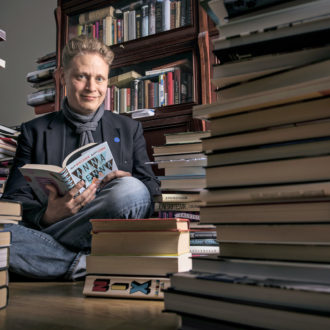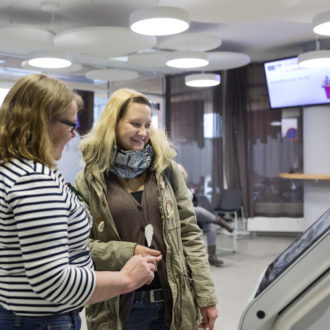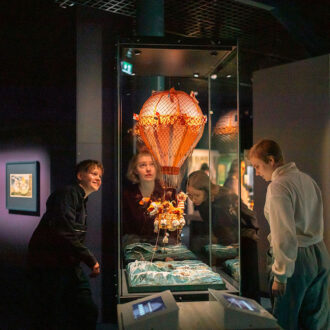Sini Marttinen, one of the 2,000 people selected randomly for Finland’s basic-income experiment, has a master’s degree in social sciences. She found a job with a foundation that provides funding in the disaster aid and logistics sector.
“This is a dream job,” she says. She bills for the work through her own company; the basic income experiment provided the impetus for her to start her own business again. Previously, becoming an entrepreneur could have ended all social allowances.
At the same time, she holds a voluntary position as a board member of the Kallio-Käpylä chapter of the Finnish Red Cross in Helsinki, and also volunteers as their campaign manager.
“Working part-time, I can also continue doing voluntary work among low-income families, inmates and asylum seekers,” she says.
Erasing the stigma of unemployment
“I used to say that I would never become an entrepreneur again, but here I am,” Marttinen says. “The basic income helps me pay the mandatory pension contributions, even if I have months with no orders or assignments. For me, this arrangement is perfect; it’s like winning the lottery.
“It is very common in Finland to blame the unemployed for their own predicament. I wish people would realise that anyone can lose their job for reasons beyond their own control.”
She believes that paying a basic income to everyone would help erase the stigma associated with being unemployed. It would be similar to the child allowance, which is paid to families with children automatically once per month.
“No amount of money alone is going to help those in the weakest position, but a basic income system might leave social workers with more time to care of those who really need help. For example, the biggest problem for someone in and out of prison is not money but finding a new way of life, a place to call home, education, work, and the means to fight addiction and settle debts.”
Excellence through experimentationPromoting pilot programmes and experiments is one of the key projects of Finland’s current government. The aim is to find innovative ways to develop Finnish society and services in order to encourage both efficiency and empowerment. This experimental culture is especially developed in the fields of employment (with the basic-income trial being one good example), the circular economy, and artificial intelligence. By 2025, Finland wants to be a forerunner in creating new solutions through experimentation. Source: Experimental Finland |
By Tuomas Muraja, ThisisFINLAND Magazine 2018







